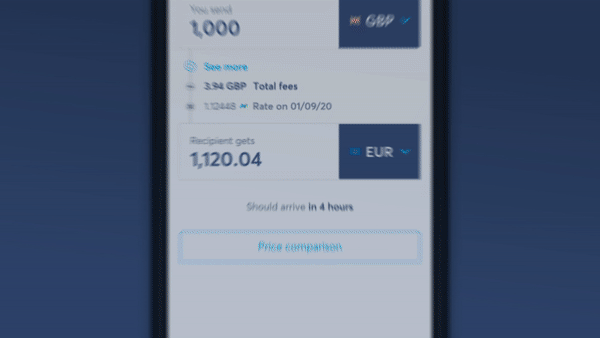What Is an International Debit Card? Uses, Benefits, and Top Options in India
What is an international debit card and how does it work? Compare features, benefits, and charges for the best international debit cards in India.

The Wise Travel card lets you hold 40+ currencies and spend at the interbank exchange rate with no forex markups or hidden fees - now free to order for a limited time.
Order your free Wise Travel card 💳
With its income tax benefits, low-risk, and guaranteed returns, the PPF has become a widely popular investment vehicle for many Indians. Backed by the Indian government, the PPF is seen as a way to help build savings for retirement while enjoying the tax benefits today.
You can open a PPF with as little as ₹100. The annual minimum deposit amount to keep the account active is ₹500, while the maximum that can be deposited in 1 year is ₹1.5 lakhs¹.
A crucial feature of the instrument is its long time horizon- it has a minimum tenure of 15 years, and allows for indefinite extensions of 5 years at a time. One catch is that you can not close the PPF before maturity. But for long-term conservative investors looking for tax-free returns, it is a win-win.
As of March 2021, the PPF interest rate currently stands at 7.10% per annum².
| Deposit your foreign earnings conveniently, cheaply and quickly to your accounts using Wise over bank transfers |
|---|
Open your free Wise account now
As of now, the bad news is that an NRI can only invest in an existing PPF account, assuming it was opened while still an Indian resident, and not a new one.
Over the last few years, there has been some uncertainty for NRIs with existing PPF accounts. In 2017, the government ruled that the PPF accounts would be closed for individuals who became an NRI during the maturity period. Under this law, the close date would be reflective of when the tax residency status changed to NRI. But, in 2018 this law was revoked by the Department of Economic Affairs³.
So, what if you or your parents opened one while you were still an Indian resident? In this case, you can still contribute to your PPF in India on a non-repatriation basis until it’s 15th-year maturity, or whenever the subsequent maturity date is. Irrespective of your current residential status, any amount that is deposited towards an open PPF will still be considered tax-exempt under Indian income tax law.
A current Non-Resident Indian is not able to open, or manage, a new PPF account¹. The only way to operate a PPF account is for the individual to have opened the account when he or she was an Indian resident- before they changed their tax status to that of an NRI.
If you are a current Indian resident (but plan to become an NRI), you can still open a PPF in your name, or on behalf of a minor that you are a guardian of. To be able to check your PPF account online, it is suggested that you open the PPF within the same bank that you currently do your online banking with and have the accounts linked.
If somehow you were able to open a new account as an NRI, or an account is opened in your name while you are an NRI, it is highly recommended that you get in touch with the concerned authorities to avoid any legal action.
If you opened a PPF and then later become an NRI, you can contribute and enjoy all the benefits of a PPF. No need to worry about the account being closed or frozen when your tax status changes. Your ongoing contributions will follow the same rules that apply to Indian citizens. Here is a quick breakdown of PPF rules for NRIs to note¹:

Have a PPF account in India? Wise is a great tool to help you make your annual or monthly contributions from overseas. With over 4 million customers, Wise is the go-to platform to send money home, without having to load up on bank fees. Using the real mid-market exchange rate - not the rate that each bank decides they want to charge you- your money will land in your Indian account without the long haul flight.
You can also track your transfer with Wise’s easy to use mobile app, so you always know where your money is. With over 54,000 excellent reviews on TrustPilot, sending your contributions through Wise to your account saves you money and is convenient to use. Before making your next international transfer, compare Wise vs leading banks and service providers to make sure you’re getting the best rates.
Sources used for this article
All sources checked as of 2 January, 2020
*Please see terms of use and product availability for your region or visit Wise fees and pricing for the most up to date pricing and fee information.
This publication is provided for general information purposes and does not constitute legal, tax or other professional advice from Wise Payments Limited or its subsidiaries and its affiliates, and it is not intended as a substitute for obtaining advice from a financial advisor or any other professional.
We make no representations, warranties or guarantees, whether expressed or implied, that the content in the publication is accurate, complete or up to date.

What is an international debit card and how does it work? Compare features, benefits, and charges for the best international debit cards in India.

Thinking about getting the Amex Platinum Travel Card? Explore its fees, rewards, perks, lounge access, and overseas charges.

Wondering which Thomas Cook Forex Card is right for your next trip? We break down the benefits and charges of each variant to help you decide.

Considering the Scapia Federal Bank credit card? Get a full review of its zero forex, rewards, and fees. Find out if it’s the right travel card for you.

Thinking about getting an Axis Bank Forex Card? Here’s a breakdown of its benefits, charges, and how it works so you can choose what works best for your trip.

Heading abroad? In our HDFC Regalia ForexPlus Card review, we break down the benefits, charges, and compare with the Wise Travel card to help you choose.